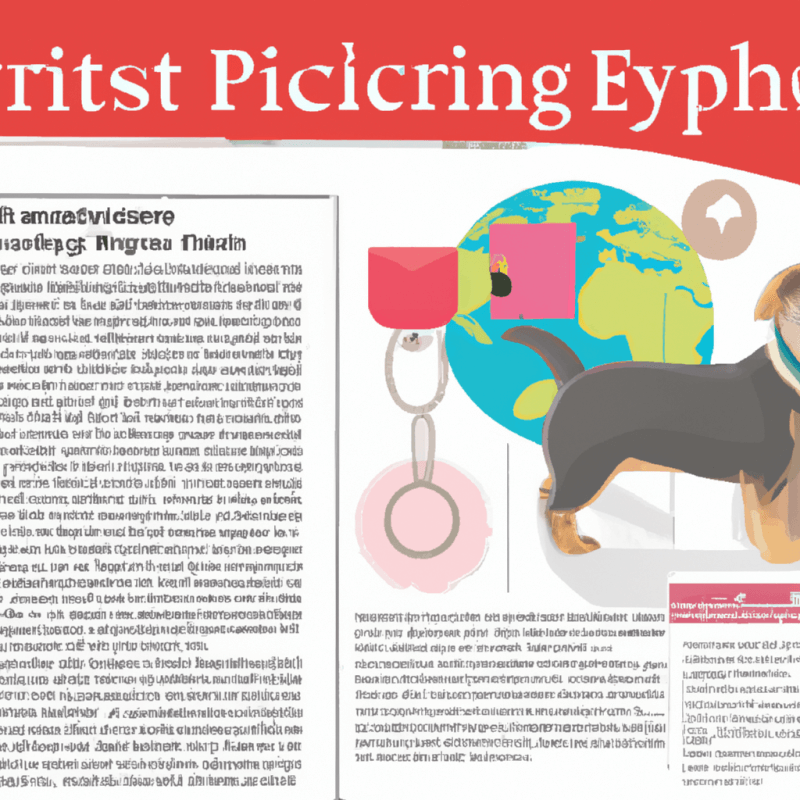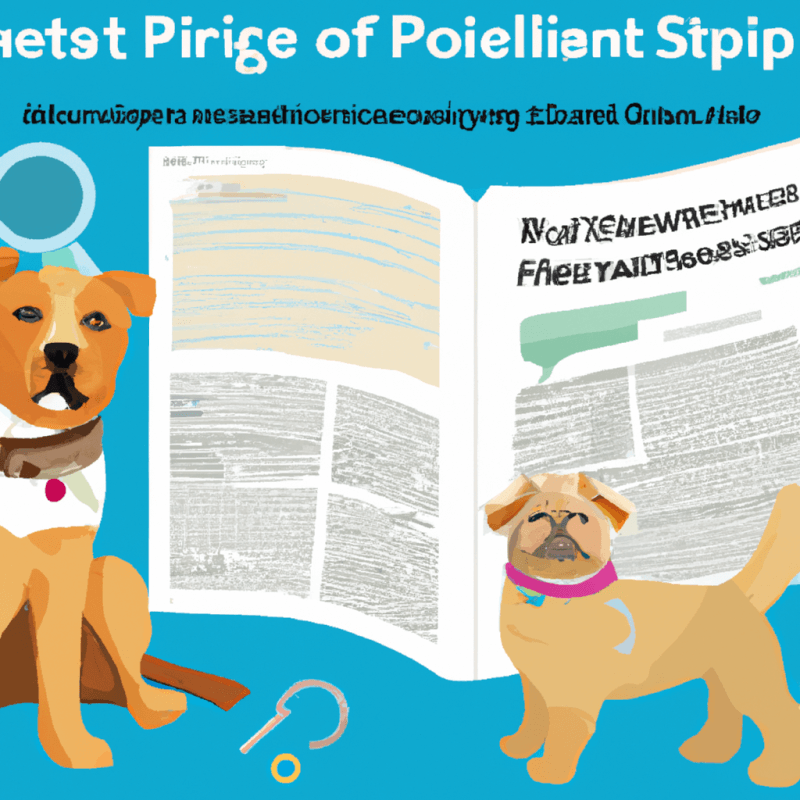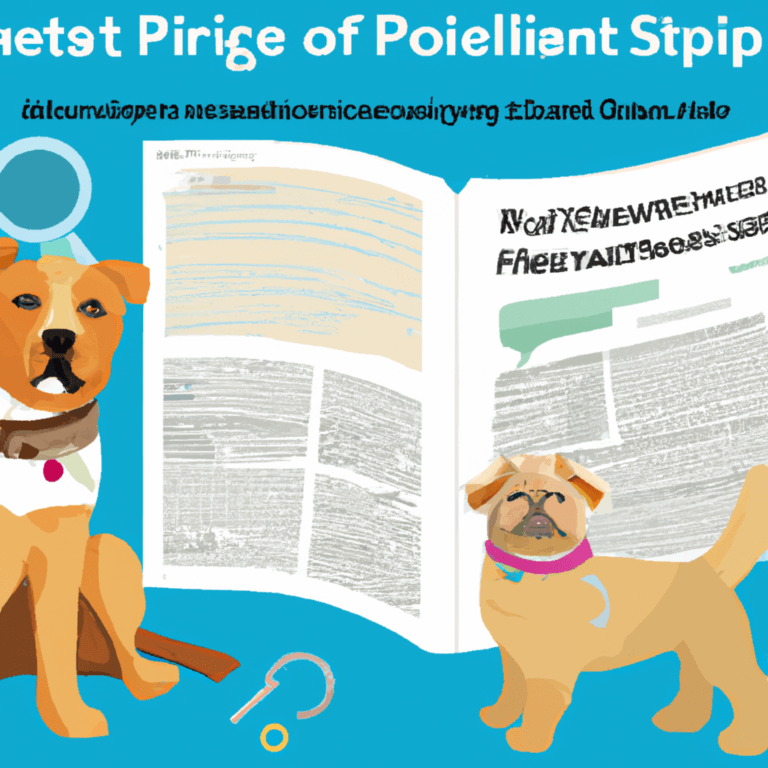If you’ve ever wondered how to ensure your furry friend is sourced ethically, you’re not alone. As pet owners, we hold a responsibility to ensure that our pets are obtained from reputable and ethical sources. From puppy mills to exotic animal trade, there are numerous issues surrounding the sourcing of pets. This article aims to provide you with valuable information and tips on how to make sure your pet is sourced ethically, so you can have peace of mind knowing that your beloved companion was acquired responsibly and with compassion.
Researching Pet Breeders
When looking to add a furry friend to your family, it’s essential to find a reputable breeder. Reputable breeders prioritize the health and well-being of their animals, ensuring that they are ethically sourced and raised. To find such breeders, start by doing thorough research. Look for breeders who have a good reputation within the community and have been in the business for a while. You can consult online forums, social media groups, and breed-specific clubs to gather information and recommendations.
Ready for Cat Trivia?
Test your knowledge about cats!

Additionally, don’t hesitate to ask for references from the breeder. Speaking to previous customers can provide insight into their experiences and satisfaction with the breeder’s practices. Contact these references and inquire about their overall experience, including how the breeder treated the animals and how the pets have adjusted to their new homes.
In-person visits to the breeder’s facilities are crucial to witness firsthand how they operate. A legitimate breeder will be more than willing to give you a tour of their facilities, allowing you to assess the cleanliness and living conditions of the animals. Observe the behavior and demeanor of the animals as well to ensure they are healthy and well-socialized.
Lastly, when communicating with potential breeders, ask them about their breeding practices. Inquire about the care and socialization provided to their animals, as well as the genetic testing and health screenings undertaken. Responsible breeders prioritize the health and genetic soundness of their animals, and they should readily provide you with information regarding these practices.
Adopting from Animal Shelters
Animal shelters are another excellent option when looking to add a pet to your family. These shelters not only provide homes for countless animals in need but also practice ethical sourcing.
Start by visiting your local animal shelters to see the pets available for adoption. Speak to the shelter staff and volunteers to learn about where they source their animals. Reputable shelters work with local authorities, partner organizations, and community members to rescue and rehome animals rather than supporting unethical breeding practices.
Consider adopting a rescue pet. Many animals in shelters are abandoned or have been rescued from abusive or neglectful situations. By adopting a rescue pet, you not only give them a second chance at a loving home but also support the efforts of these shelters in combating unethical breeding practices.

Considering Pet Adoption Events
Attending pet adoption events can be an enjoyable way to find your new furry companion and ensure their ethical background. These events bring together various organizations that rescue and foster animals. To make the most of these events, it is crucial to do some research beforehand.
Before attending an adoption event, research the organizations that will be participating. Look for information about their sourcing practices and their commitment to ethical breeding. Reputable organizations will have strict screening processes in place to ensure the animals they rescue or foster have come from responsible sources.
During the event, take the opportunity to speak with representatives from the organizations and ask questions about their sourcing and adoption processes. Inquire about the steps they take to ensure the animals’ health and background, as well as their policies on spaying/neutering, vaccinations, and microchipping. Knowledgeable and dedicated organizations will willingly provide you with all the information you need to make an informed decision.
Choosing Pet Stores
While pet stores are not always associated with ethical sourcing practices, there are responsible options available. Identifying these responsible pet stores is crucial when seeking a new pet companion.
First, check if the pet store works with local breeders. Responsible pet stores establish relationships with reputable breeders who ensure the health and well-being of their animals. By supporting local breeders, these pet stores contribute to the ethical sourcing of pets.
Another factor to consider is whether the store supports animal welfare organizations. Some pet stores actively work alongside animal welfare organizations, promoting responsible pet ownership and advocating against unethical breeding practices. These stores often collaborate with local shelters, hosting adoption events and supporting rescue efforts.

Checking Online Marketplaces
As online marketplaces become increasingly popular for purchasing pets, it’s essential to exercise caution and thoroughly research sellers to ensure ethical sourcing.
When considering online sellers, start by researching their reputation. Look for reviews and ratings from previous customers to gauge their trustworthiness and the overall satisfaction of buyers. Pay attention to any red flags, such as complaints about the seller’s ethics or the health of the pets purchased.
Furthermore, verify the seller’s credentials. Legitimate online sellers should be transparent about their identity and the source of their animals. Consider reaching out to the seller directly to ask questions about their breeding practices, genetic testing, and health screenings. A responsible seller will provide you with the necessary information without hesitation.
One crucial aspect to address when evaluating online sellers is the assurance that pets are not sourced from puppy mills. Puppy mills are notorious for their inhumane and unethical breeding practices, prioritizing profit over animal welfare. Make sure the seller explicitly states that their animals do not come from puppy mills and can provide proof of ethical sourcing.
Understanding Ethical Breeding Practices
To ensure the ethical sourcing of pets, it’s important to educate yourself about responsible breeding practices and breed-specific health concerns.
Research responsible breeding practices to understand what sets ethical breeders apart from those engaged in unethical practices. Responsible breeders prioritize the health, temperament, and genetic soundness of their animals. They carefully select breeding pairs based on genetics, temperament, and health history, ensuring that they are not perpetuating harmful traits or predispositions.
Familiarize yourself with breed-specific health concerns. Different dog breeds, for example, may have inherent genetic conditions that responsible breeders aim to mitigate. By understanding these concerns, you can ask breeders informed questions about the steps they take to screen for and prevent these health issues.
When speaking with breeders, don’t hesitate to inquire about genetic testing and screenings. Responsible breeders conduct thorough genetic tests on their breeding animals to identify and eliminate potential inherited health conditions. They should provide you with the necessary documentation and information about the health of the animal’s lineage.

Considering Adoption Fees
Adoption fees vary depending on the type of pet and the organization you adopt from. Understanding these fees is crucial to determine if they are reasonable and what they cover.
Adoption fees typically contribute to the costs associated with caring for the animal while in the organization’s custody. This includes expenses such as food, vaccinations, spaying/neutering, microchipping, and veterinary check-ups. The fee also acts as a donation to the organization, supporting their ongoing rescue and advocacy efforts.
When considering adoption fees, it’s essential to evaluate whether the fee is reasonable for the services provided. Compare fees across different organizations and ask for a breakdown of what is included in the adoption fee. Reputable organizations will be transparent about their expenses and have reasonable fees that align with the care they provide to the animals.
Supporting Animal Welfare Organizations
Supporting reputable animal welfare organizations is an effective way to contribute to the ethical treatment of pets and promote responsible pet ownership.
Consider making donations to these organizations. Funds donated to reputable animal welfare organizations help support their rescue and rehoming efforts, as well as their advocacy against unethical breeding practices. These donations provide financial resources to ensure the animals receive proper care, medical treatment, and socialization while awaiting adoption.
Another way to support animal welfare organizations is by volunteering your time. Local shelters always appreciate dedicated volunteers who can assist with various tasks, such as animal care, cleaning, socialization, and adoption events. By volunteering, you actively contribute to the animals’ well-being and help promote responsible pet ownership.

Raising Awareness
Raising awareness about ethical sourcing practices and responsible pet ownership is crucial in combating unethical breeding and promoting animal welfare.
Take the initiative to educate your friends and family about ethical sourcing practices. Share the knowledge you have acquired through your research and personal experiences, emphasizing the importance of responsible breeders, adoption, and avoiding puppy mills. Encourage them to adopt or purchase pets from reputable sources and explain the benefits of doing so.
Utilize social media platforms to share information about ethical sourcing and responsible pet ownership. Post informative articles, success stories of rescued animals, and tips for identifying reputable breeders and shelters. Engage with your followers and encourage them to share the information further, expanding the reach and impact of your advocacy.
Support campaigns against puppy mills and unethical breeding. Join or organize local events, sign petitions, or write letters to legislators advocating for stricter regulations on breeding practices. By actively voicing your concerns and supporting these campaigns, you contribute to raising awareness and effecting change on a larger scale.
Spreading the Word
In addition to raising awareness, it’s important to actively spread the word about responsible pet ownership and the importance of sourcing pets ethically.
Encourage others to prioritize ethical sourcing when adding a new pet to their family. Share your positive experiences with reputable breeders, animal shelters, and adoption events. Highlight the joy and fulfillment that comes from providing a loving home to a pet in need and emphasize the difference each person can make by choosing ethical sourcing.
Start conversations about responsible pet ownership whenever the opportunity arises. Engage in discussions with friends, family, coworkers, and even strangers who express an interest in owning a pet. Share your knowledge and experiences, providing guidance on finding reputable breeders, supporting local shelters, and avoiding puppy mills. By engaging in these conversations, you help shape people’s perspectives and influence their choices.
By following these steps and actively participating in ethical sourcing practices, you can ensure that your new pet is sourced in a responsible and humane manner. Remember, every action counts, and together we can make a difference in the lives of animals and promote a more compassionate society.



